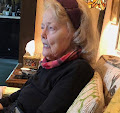Research and Development
years: 1979-1999
I kept going, setting up 12 research sites in the process, training and conducting trial classes with puppetry voices.
Today we have large, well-attended neuroscience conferences; many students major in cognition.
The topic now also floods the internet’s Social Media feeds, nearly half a century later.
The first memory and cognition lessons 1-30, were created on audio tape formats, recorded in detail several times.
Hefty personal-directive, workbook additions, complete with researched and cited, lessons, were added to interface with the listening tapes; 45 minutes of additional written/spoken homework was required.
Unfortunately, the cassette tapes consisted of the warm-up drills only; with few game lessons (which are the centerpiece of the instruction). The complete game lessons were administered by an instructor applying transparencies on an overhead projector in group settings, according to age ranges and abilities.
School implementations were activated on this crude model.
Data streams were compiled as such by 5 different university
professors and grad students. Then, the data was submitted to the
The final data process then progressed to the
This rehearsal model was rapidly becoming non-feasible, outdated, with technological advancement.
Subsequently, initial filming of the Warm-up lessons and a few simple “Games” followed. But the bulk of the program was in limbo, requiring high-definition video and sound.
The recent, arduous, film update was strapped with earlier detailed compilations to formulate, yet in the mirrored procedure as the earlier audio tape formats.
A long incubation followed, until recently, when the seemingly unattainable process was realized this spring in solid teamwork with talented sound engineer, Scott Adam Walker.
.jpg)







